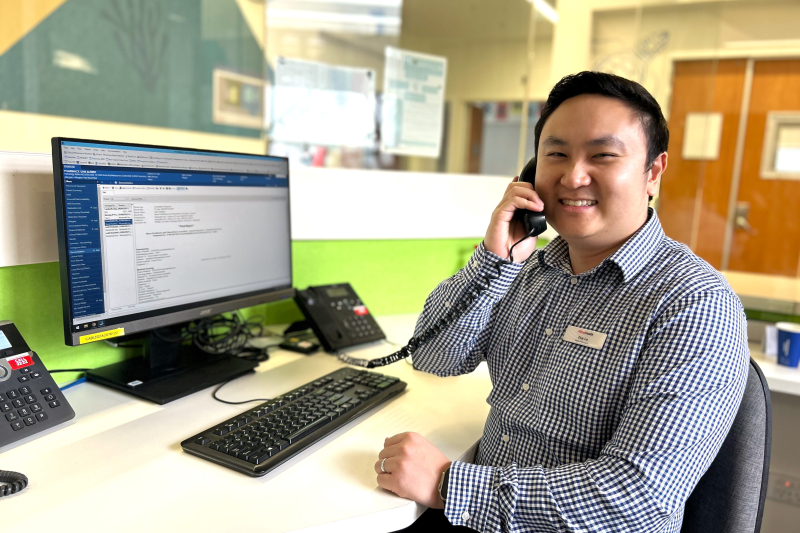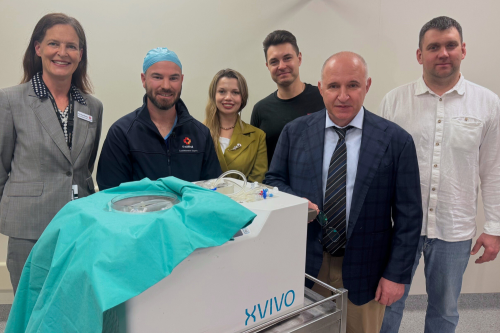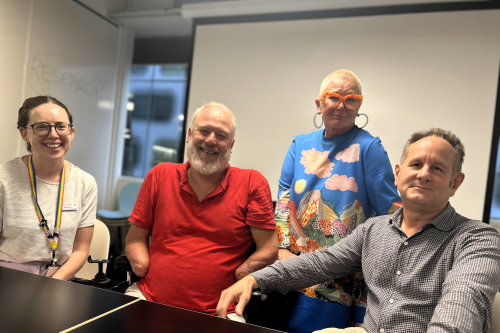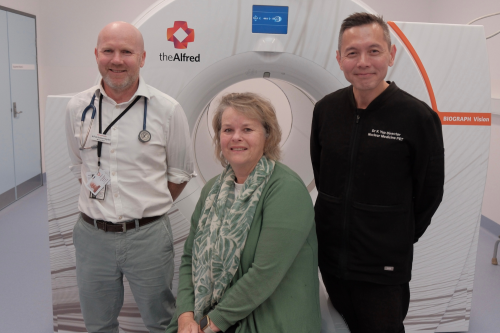Celebrating World Pharmacists Day

Between calls, we managed to catch Lead Pharmacist for Home, Acute and Community, Duy Le, and wish him a Happy World Pharmacists Day!
Duy’s team is currently working on a new initiative where pharmacy staff follow up with patients once they’ve returned home after a hospital stay.
“We check in to see how they’re managing their medications, as these often change during admission,” Duy said.
“We confirm they understand any changes, talk through how their medicines are working - including side effects and effectiveness - and provide advice or answer questions.
“We also make sure they’re linked in with any follow-up care they might need.
“This helps ensure the medicines we’ve prescribed are truly benefiting them and gives patients greater confidence in managing their treatment.”
Despite pharmacy being an essential part of both hospitals and the community, Duy said many people still wonder what pharmacists actually do.
“I saw an Insta reel where someone joked about what pharmacists could possibly be doing behind the counter after getting a prescription - which made me laugh,” Duy said.
“But the reality is, behind the counter we’re doing far more than people might realise.
“We’re cross-checking with doctors to make sure every medicine is safe and appropriate, looking out for interactions with other treatments, adjusting doses for things like kidney or liver function, and making sure patients actually receive the right formulation for their needs.
“Sometimes we’re even preparing and mixing medications ourselves - from creams to suspensions - tailored specifically for that patient.”
In a hospital setting, this work expands – and once more, it goes far beyond dispensation.
“We’re embedded in multidisciplinary teams on the wards, contributing to treatment decisions and making sure medication plans are safe, evidence-based and individualised," Duy said.
“We collaborate closely with medical, nursing and allied health staff to support recovery and discharge planning.
“Behind the scenes, pharmacy teams are also keeping operations running - managing stock and sourcing life-saving medicines from across the world when they’re urgently needed.
“On top of that, we’re involved in research to improve how medicines are used, and in education - training the next generation of clinicians.
“It’s a really broad role, and there’s a lot happening back here that most people never get to see.”


